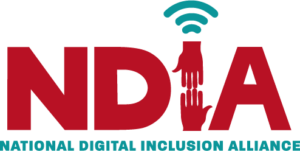The Street Academy in Accra, Ghana: Part 2
This is the second and final part of our series about the Street Academy in Accra, Ghana. To read part one, click here.
Other Benefits
One of the most rewarding and unexpected boons to come out of the laptop program is the degree of peer teaching that happens. Although our children learn very fast, they learn at different speeds even within a cohort, and there are only enough computers that each laptop must be shared by 4 to 6 students at each lesson. Not only do we sometimes ask students who have mastered a concept to show their teammates, but they often take the initiative to do it themselves. Not only does this disseminate the knowledge more quickly, and saves time for other skills, but the students who do the teaching often master the skill even faster, and come up with creative ways of teaching their peers.
In addition to peer teaching, our students learn just by watching us teach, without being explicitly taught. For example, I often use the “escape” key to cancel actions as second-nature. I noticed that my students were beginning to use the escape key in the same manner—without being told what it does—and that the information was then spread peer-to-peer to other students.
One of our students has advanced so far that we have allowed him to take home a staff’s personal netbook over a weekend to continue exploring. The netbook uses a Windows OS, but that doesn’t seem to have caused him one iota of trouble.
The icing on the cake? Another of our students exclaimed that the Wikipedia articles that he had been reading were too hard to understand, and that he wished he had paid better attention in English.
Current Lesson and Future Hopes/Challenges
Our current lesson centers around information-gathering challenges: find a certain trivia (e.g. establishment date of Gold Coast Protectorate) by searching through Wikipedia Selection. When our students’ typing skills become a little faster, we hope to set creative challenges as well: using the computer to create art, or write a story. Our short-term goal is for our children to be able to help edit their summer documentary project through the Akosia Foundation. Our ultimate goal is a group of children who can research and create using computers and can pass that knowledge on to new students.
What do we need to reach this goal? The number one thing we need is more laptops. Each lesson our children spend more time watching than doing since so many have to share. While we make sure every student has a turn practicing each skill we teach, it can be hard to spot dominating personalities while they are freely exploring. We do like the peer teaching mechanic, but it would be nice if laptop groups were limited to 2-3 rather than 4-6. Next, we also need teaching ideas and methods if others have developed them. Just like any electronic open source project; in teaching, the more ideas we have, the better job we do.
Problems
In fact the only complaint we have with the Edubuntu laptops is the relative lack of articles in Wikipedia Selection on Africa and Ghana (understandable, Wikipedia Selection’s focus originally for US and UK schools).
Want to know what YOU can do to help? Visit the Get Involved section of our website.


